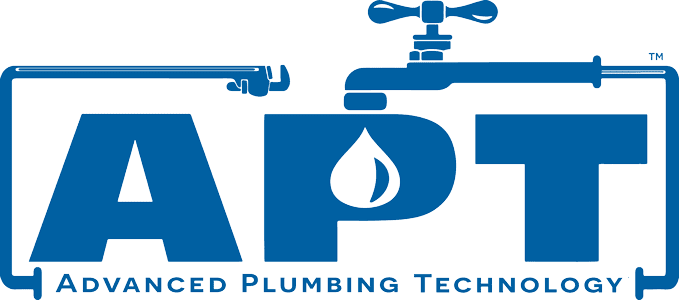Plumbing Myths Debunked: Separating Facts from Fiction
September 24th, 2023Posted by Brian Shoemaker
At Advanced Plumbing Technology, we are committed to providing you with accurate and reliable information to help you make informed decisions about your plumbing needs. In this comprehensive guide, we aim to debunk common plumbing myths that often circulate and provide you with the real facts. Let’s dive into the world of plumbing and uncover the truth behind these misconceptions.
Myth 1: “Leaky Faucets Are Harmless, Just Ignore Them”
Fact: Leaky faucets might seem like a minor annoyance, but they can lead to significant water wastage and increased utility bills over time. Even a slow drip can waste gallons of water, impacting both your wallet and the environment. Moreover, those constant drips can escalate into larger leaks if not addressed promptly. It’s best to address any leaks as soon as you notice them to prevent further damage and conserve water.
Myth 2: “Flushable Wipes Are Safe for Plumbing Systems”
Fact: One of the prevailing misconceptions is that “flushable” wipes can be safely disposed of down the toilet. However, these wipes do not disintegrate like toilet paper does, and they can accumulate in your plumbing system, causing blockages and backups. Flushing anything other than toilet paper and human waste can lead to clogs that may require professional intervention to clear.
Myth 3: “Lemons Keep Your Garbage Disposal Clean”
Fact: While the citrusy scent of lemons can temporarily mask odors in your garbage disposal, they do not effectively clean the system. In fact, putting citrus peels down the disposal can lead to clogs and damage to the blades. To properly maintain your garbage disposal, use cold water while grinding small food scraps, and consider using ice cubes to help keep the blades sharp.
Myth 4: “In-Tank Cleaners Keep Your Toilet Spotless”
Fact: In-tank toilet cleaners that claim to keep your toilet clean with every flush might seem convenient, but they often contain harsh chemicals that can corrode the components inside the tank. These chemicals can lead to leaks, malfunctioning flush mechanisms, and even damage to the porcelain. A safer and more effective way to clean your toilet is to use a mild cleaner and a toilet brush regularly.
Myth 5: “A Plunger Can Fix Any Clog”
Fact: While plungers can be a useful tool for clearing minor clogs, they are not a one-size-fits-all solution. Plungers work best on clogs that are caused by air pressure changes, such as in toilets and some sinks. However, for deeper and more stubborn clogs, a plunger may not be effective. In these cases, it’s better to avoid using excessive force and instead call a professional plumber to prevent further damage.
Myth 6: “All Plumbing Fixtures Are the Same”
Fact: Not all plumbing fixtures are created equal. There are different types of faucets, toilets, showers, and sinks available on the market, each with its own set of features and functionalities. Choosing the right fixtures for your needs can improve water efficiency, aesthetics, and overall functionality. Consulting with a plumbing expert can help you make informed decisions based on your specific requirements.
Myth 7: “Water Heater Maintenance Is Unnecessary”
Fact: Neglecting water heater maintenance can lead to reduced efficiency, higher energy bills, and even premature failure. Over time, sediment can build up at the bottom of the tank, causing it to work harder to heat the water. Regular flushing and maintenance by a professional plumber can extend the lifespan of your water heater and ensure optimal performance.
Myth 8: “DIY Plumbing Is Always Cheaper”
Fact: While DIY projects can be fulfilling, attempting complex plumbing repairs without the necessary skills and knowledge can lead to costly mistakes. A seemingly minor error can result in extensive damage and expensive repairs. It’s important to know your limits and call a professional plumber for tasks that are beyond your expertise to avoid potential hazards and ensure the job is done correctly.
Myth 9: “Water Pressure Is Always Good”
Fact: While high water pressure can be invigorating, excessively high water pressure can damage your plumbing system and lead to leaks or burst pipes. Using a pressure regulator can help maintain a safe and consistent water pressure throughout your home, preventing unnecessary stress on your pipes and appliances.
Myth 10: “Pipes Will Last Forever”
Fact: Unfortunately, pipes do not last indefinitely. Over time, pipes can corrode, develop leaks, and experience wear and tear. Regular inspections by a professional plumber can help identify potential issues before they escalate, saving you from the headache of unexpected plumbing emergencies.
In conclusion, it’s essential to separate plumbing facts from fiction to ensure the longevity and functionality of your plumbing system.Advanced Plumbing Technology reminds you that while these myths may persist, being armed with accurate information can empower you to make the right choices for your home. If you ever have questions or concerns about your plumbing, don’t hesitate to reach out to the experts for reliable guidance and professional assistance.
